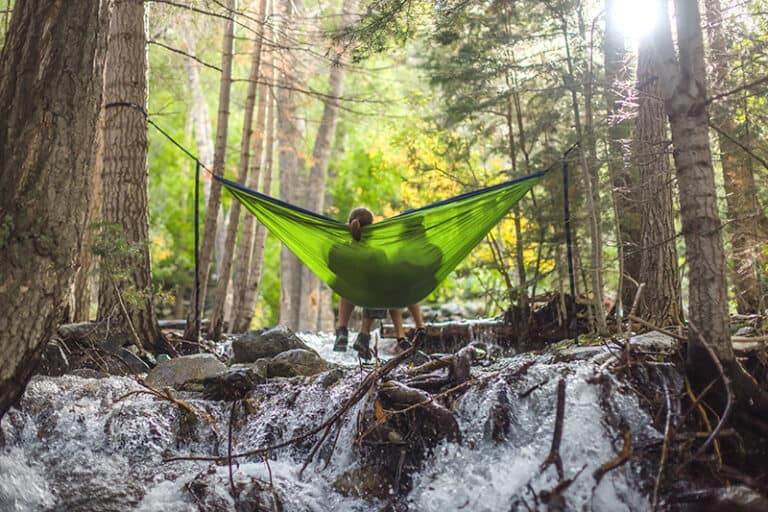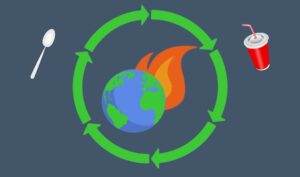We can make a number of changes in our lives to be more sustainable. Being more sustainable lets us have a greater impact on our environment. So let’s take a look at the top changes we can make.
What We Can Do For the Environment
1. Making smarter purchases

Smarter purchases may not just mean making ones that are more effective money-wise. As consumers, we have the opportunity to decide what we buy and what companies we support.
For example, we can support B-corp companies, or source goods from local businesses that produce less carbon dioxide. We can also support companies that are eco-friendly, reduce their plastic use, or those that commit to producer take-back programs. Anything we can do to reduce our carbon footprint would go far for the environment.
2. Avoid purchasing items with too much packaging

These days, too many items are packaged in plastic. Layers of plastic are wasteful – and we need to do something about it. The best way we can avoid this is by choosing items with fewer packaging or opting for plastic-free products.
Buying from local farmer markets are another option, too. So is simply bringing cotton produce bags to the grocery store, and filling up your vegetables with them. Reducing our use of plastic packaging will limit the amount of plastics cluttering up our landfills.
3. Conserve water usage

When brushing teeth or washing dishes or showering, we use more water than we think. Even just by reducing a minute of water usage will save a lot of water.
In other areas, consider how much water you use for watering your lawn. Lawn watering is one of the biggest wastes of water in North America, after agriculture. Find ways to water your lawn more sparingly, or stop all together.
We cannot survive without water, so making sure we use it responsibly is crucial.
4. Change our travelling habits

Did you know taking an airplane or going on a cruise emits a lot of carbon dioxide? Planes and cruise ships are known to be big emitters of carbon dioxide. Cruise ships too, are known to pollute the waters by dumping waste directly into the sea. As oceans become clogged with waste, we should think twice about supporting such an unsustainable industry.
Even for shorter trips locally, there may be better alternatives to using a car. Biking, commuting, or even walking can reduce air pollution. Carpooling or ride sharing may be options for you too, depending on where you live. Or, if you must use a car, consider planning out your trip so that you can hit multiple locations at once, rather than make several trips.
5. Support local products
Locally-sourced products have smaller carbon footprints than those sourced from other countries. Buying local and eating local will help reduce pollution. With how much energy and fuel is used to transport products from country to country, it’s almost just worth it to buy local. Besides, supporting local products often mean supporting local businesses. If we support local businesses, it also means as a whole, we are more self-sustained.

Another great way to reduce your environmental impact is to simply grow your own vegetables and herbs. Instead of transporting produce from another country to your kitchen, simply learn to garden and grow your own. You’ll be surprised at how much money you can save by growing your own vegetables. Even if you live in an apartment with a patio instead of a garden, there are still herbs and vegetables you can grow!
6. Buy less, or fix more of your items

Another way to lessen our impact on the environment is by buying less – which require better care of our possessions to begin with. But when an item breaks down, don’t just throw it away. Consider repurposing it, or fixing it. Many times there are ways to get an item working again. So don’t just rush out to the store to grab a replacement; see what you can do with what you have first. This will go a long way to reducing unnecessary consumption.
7. Support eco-tourism operators
 Whether you’re on vacation or working in tourism, consider supporting companies that do their part for the environment. When vacationing, thinking about sustainability and the environment may be the last thing on your mind. However, we urge you to research your trips and destinations, and make sure your money is being spent on sustainable tourism operators instead of ones that abuse wildlife or the environment.
Whether you’re on vacation or working in tourism, consider supporting companies that do their part for the environment. When vacationing, thinking about sustainability and the environment may be the last thing on your mind. However, we urge you to research your trips and destinations, and make sure your money is being spent on sustainable tourism operators instead of ones that abuse wildlife or the environment.
8. Like hiking? Go zero-waste.
The mentality “leave nothing behind” makes sense when hiking or camping. As it becomes more popular to hike or travel the unbeaten paths, consider making your trip zero waste. This may come from using reusable lunch boxes to pack your camping food, or taking the BBQ propane tank home with you for recycling instead of leaving it at the park.

Being mindful while camping or hiking can mean prepping ahead of time, like bringing a reusable water bottle instead of bottled water. Spending an extra five to ten minutes to find a way to leave nothing behind at a campsite or hiking trail will do much for the environment.
Canadian Mattress Recycling is Metro Vancouver’s leading mattress recycler. Since 2011, we have recycled over 25 million lbs of mattresses and furniture. Keep up to date with our community blog – we always post new topics about recycling and the environment. Don’t forget to follow us on Facebook and Twitter for engaging conversations!





